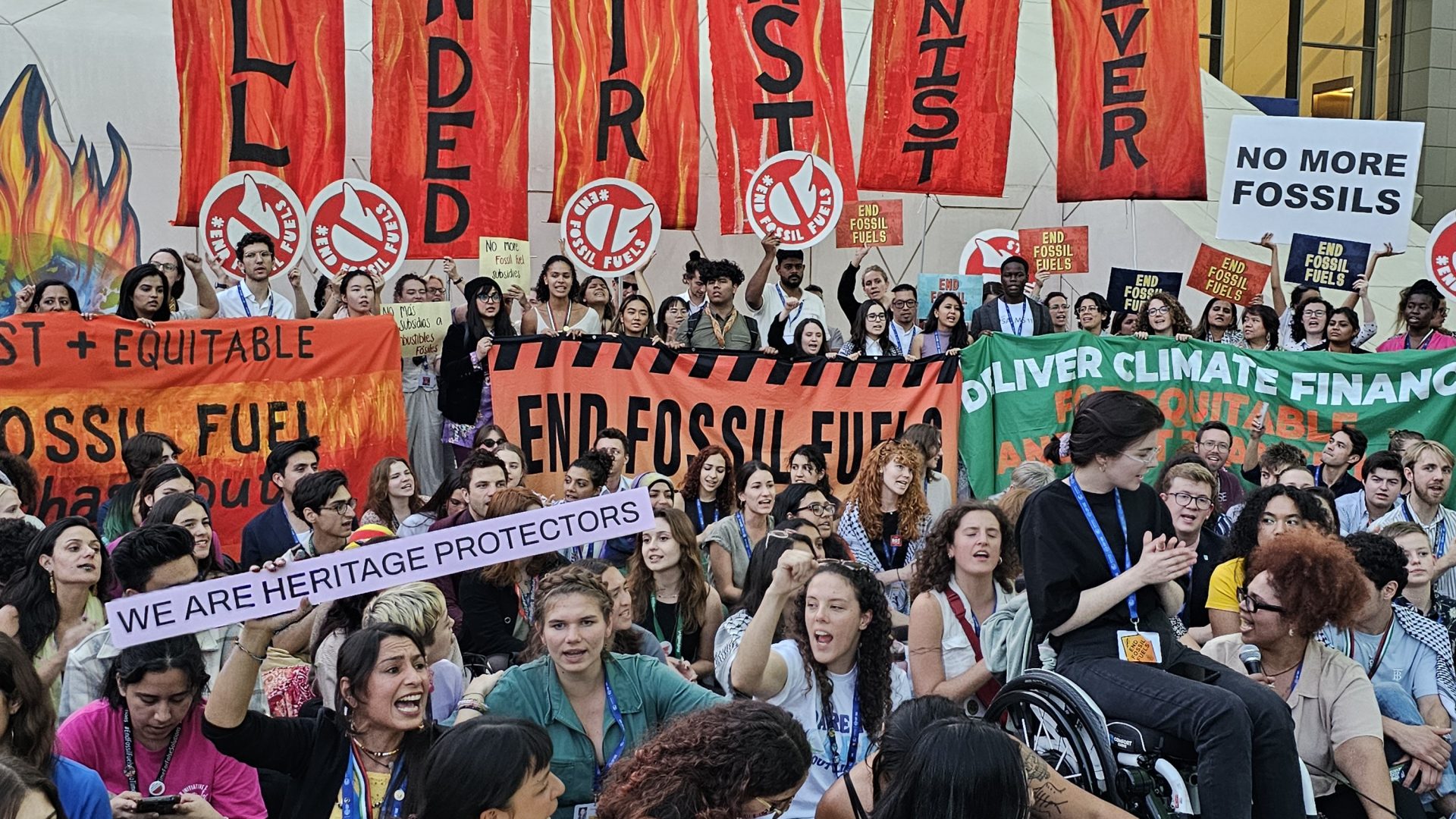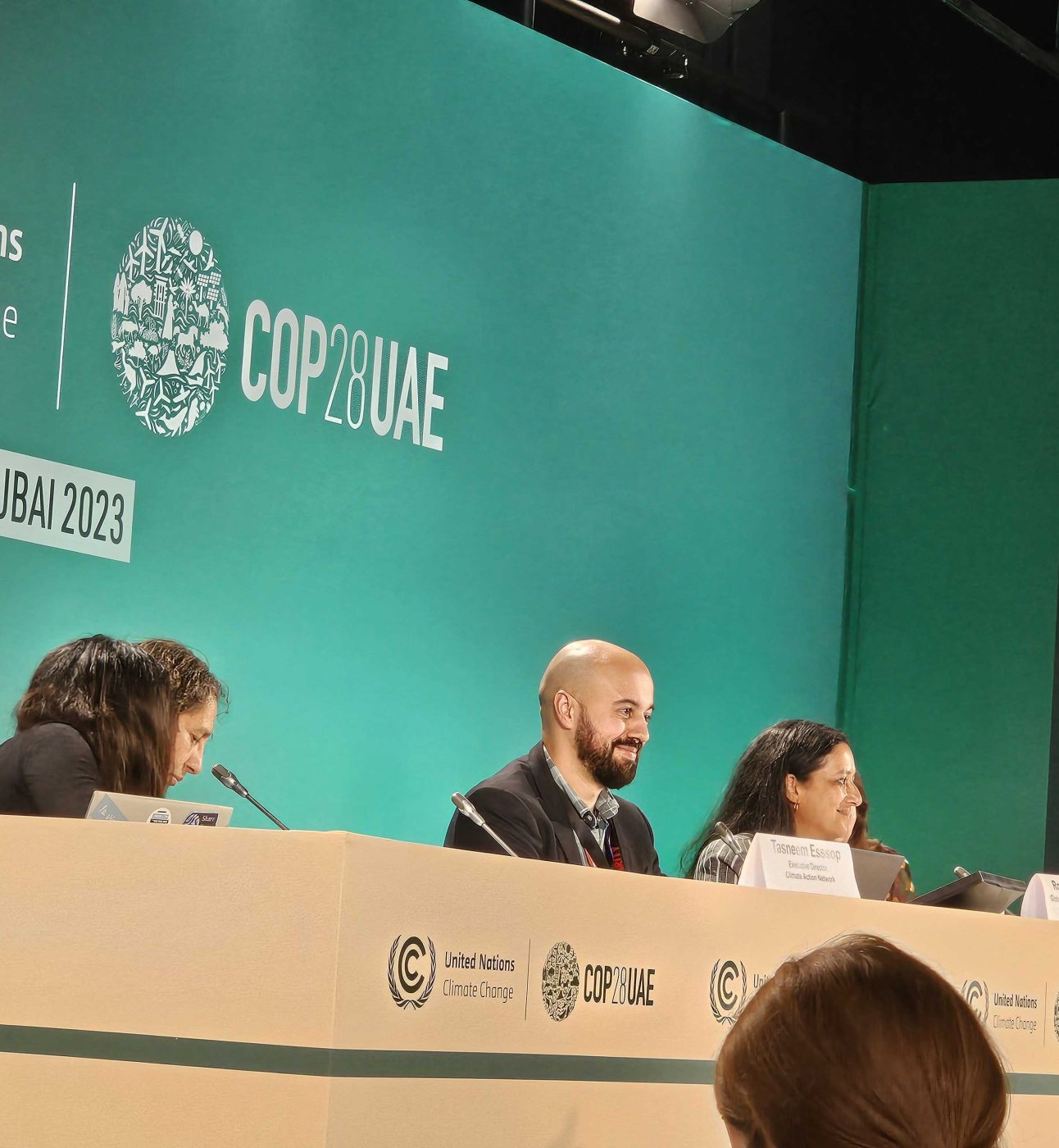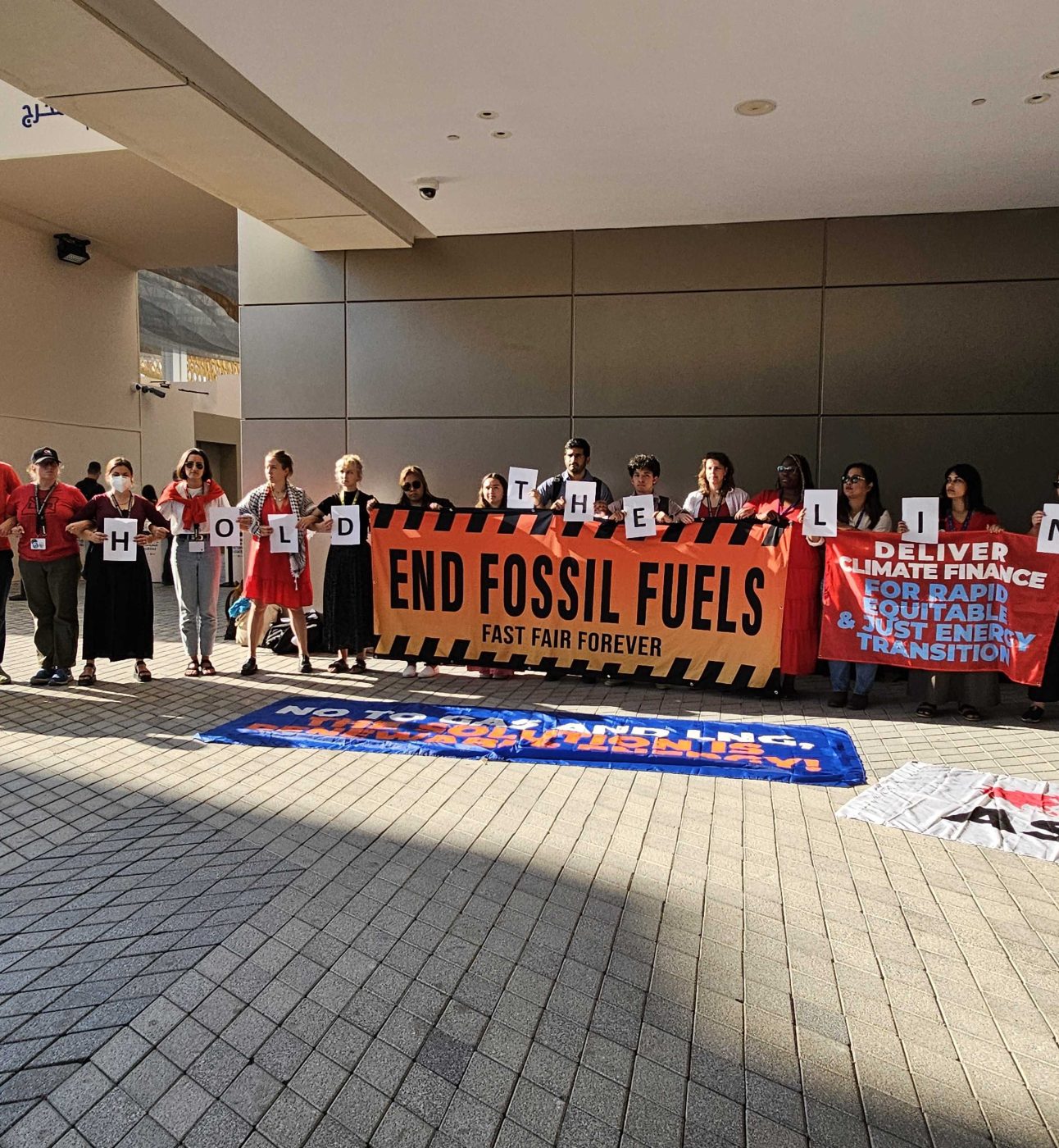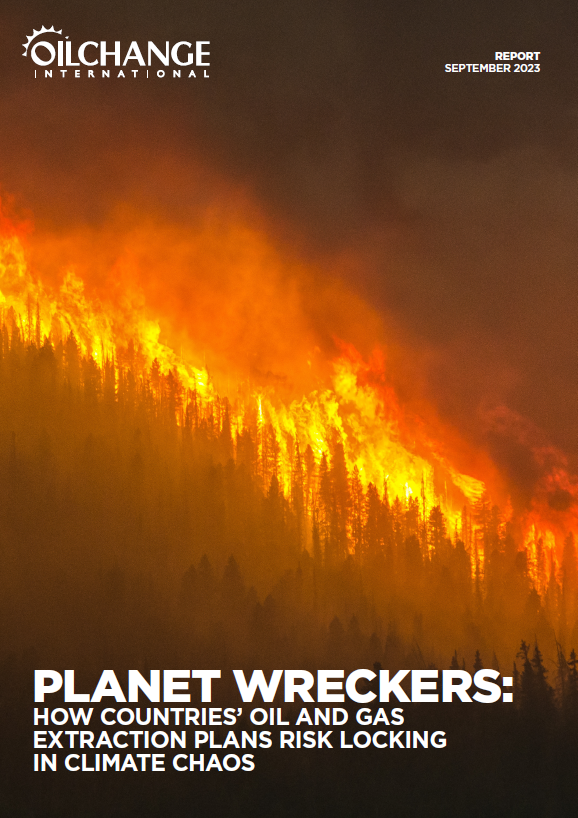In order to preserve a liveable climate, governments and other decision makers must immediately end the expansion of fossil fuel production and support a just and equitable phaseout of all fossil fuels.
In an unprecedented moment at the UN climate talks in 2023, governments came to an agreement for the first time to “transition away from fossil fuels” – in large part thanks to decades long climate justice movement efforts to fight fossil fuels and secure a livable and equitable future for all. But, for the most part, governments, in particular in the Global North, have yet to heed the science and the voices of people on the frontlines of the climate crisis and take the first basic step: put an end to new fossil fuel extraction and infrastructure in a just and equitable manner.
Through advocacy, research, and communication, we’re working to end fossil fuel expansion and to hold governments accountable to implementing their commitment to phase out fossil fuels and make a full, fast, fair, and funded transition to renewable energy a reality through their domestic and international policies.







